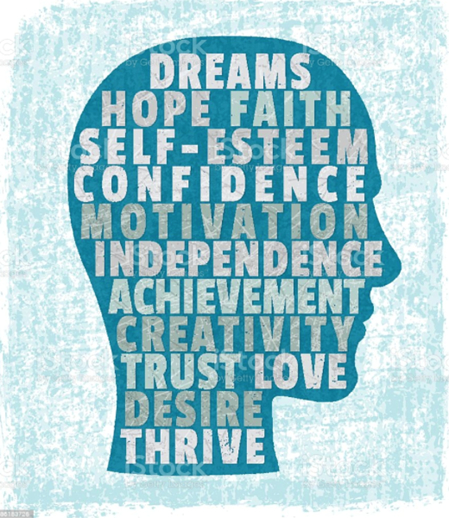If you were to understand that the experiences and events that you are attracting are directly related to your own thought processes would you be willing to change your thoughts?
When life isn’t going as planned, it’s easy to fall into a downward spiral, with negative thinking and feeling powerless to get out of it. However, it is precisely at this time that shifting your thoughts to more optimistic ones, even feelings of gratitude about what is good in your life, will create the necessary change. A Wellbeing Coach can help you shift from negative thought processes when they have become overwhelming.
Thoughts are an electrical impulse which shape energy both within the nervous system of our body and outside our bodies within the world. When we are with other people we can pick up on their thoughts, feelings or emotions, whether consciously or unconsciously, and believe they are ours.
We are radio receivers to energies as well as party to a collective mind so one way to determine if a thought is ours is to ask the question, silently in our head, “Who does that belong to?”. If the thought lightens up, it doesn’t belong to you, it is someone else’s so you can say “return to sender”. If you still feel heavy as a result of asking that question, then it may be yours so you can ask “What is this? What can I do about it? Can I change it? If so, how can I change it?” You are asking the question to receive an awareness about the thought and not to answer it directly yourself. Leave the question out there and see what awarenesses you have in an hour, a day, a week. The majority of our thoughts come from learned, or programmed behaviour. A great way to release feelings of negativity is to have a session of Access Bars, which is an energy medicine technique which acts like a ‘delete button’ on our negative mind.
Thoughts, whether our own or belonging to others people, lead to feelings which we experience in our body. Feelings result in an emotional response which may not be a direct result of that particular event. For instance, your friend is half an hour late to meet you and your mind is telling you ‘they are not coming’ or ‘they are taking advantage of your kindness’. Your brain has a default mode network, a self reflective part, which is active when we are not focussed on a task and it typically has a negative ruminating influence. It is useful for giving us warnings to keep us out of danger but can interpret events through its own filters and points of reference, for instance you may have been stood up on a previous occasion.
Making a conscious effort to busy our mind with positive thoughts is more likely to create a positive outcome and a cheerful mood. It may sound easier said that done, but is actually a learned behaviour and once you have re-programmed your mind to expect the best you will start to attract good things.
When your friend does eventually arrive and explains a traffic accident which closed off their journey and expresses how appreciative they are that you waited, all those negative feelings will dissipate and you will recognise the negative talk was unnecessary.
Diet plays a major role in our mood, so if the above tools are not having the desired effect, working with a Nutritional Therapist to incorporate more mood boosting foods could create the change that you require.


